An interview with Francis Waplinger
1June 11, 2018 by Ville Raivio
VR: Your age and occupation?
Products from Pukimo Raivio
Ralph Lauren, Black Label suit, size 52EU
FW: I am a 31-year-old shoemaker.
VR: Your educational background?
FW: I graduated from the Savannah College of Art and Design with a bachelor’s degree in interior design. After a short break from formal schooling, I enrolled in Accademia Riaci, an arts and craft school in Florence, Italy. There I completed the Atelier and Master programs in shoemaking, followed by an apprenticeship with Roberto Ugolini.
VR: Have you any children or spouse (and how do they relate to your shoe enthusiasm)?
FW: I have a beautiful and talented fiancé. We both share an intense passion for our respective crafts, as I am a shoemaker and she is a classically trained painter. Our appreciation for beauty, craft, and art play a large role in our lives and together drives us forward with our crafts. I have made her several pairs of shoes which gives me great joy. She has a great eye for design and I am always bouncing ideas off of her. My fiancé is a constant resource and most importantly she has always supported and believed in me even when I have doubted myself.
VR: …and your parent’s and siblings’ reactions back when you decided to become a shoemaker?
FW: My parents and sister have always been supportive of my pursuit of shoemaking. In this sense, I am very lucky.
VR: What other hobbies or passions do you have besides footwear?
FW: My true passion is shoemaking. As for hobbies, I enjoy cooking, wine, coffee, and gardening.
VR: How did you first become interested in shoes, and when did you turn your eyes towards artisanal shoemaking? Why classic models instead of fashion?
FW: As a kid I grew up playing soccer and later started skateboarding in middle school. With both activities, footwear is a key component of the culture. So, I was always interested in the latest soccer cleats and newest skate shoes. From there, I started buying solid color skate shoes and would airbrush them different color ways to make a custom sneaker. I was first introduced to the idea of actual shoemaking by a family friend who had heard of a week-long shoemaking course in the Seattle area (where I grew up). That first week-long course turned into a second week-long course the following year. After the second course, I did some shoemaking on my own but soon realized that in order to truly master the craft I needed to either apprentice in a shoemaking workshop or enroll in a shoemaking school. After that realization, I ended up in Florence, Italy, attending a shoemaking school and later apprenticing in a workshop.
My initial interest in shoes was more a combination of practicality and fashion. Soccer cleats as well as skate shoes serve a particular function but are also constantly being updated with the latest trends and “technology.” This all changed once I began my journey into the world of classic handmade footwear. Making shoes was so appealing to me because it was a combination of timeless beauty and functionality. A well constructed shoe that fits properly provides support, in my case, eliminating the need for supportive insoles, and it is also a wearable piece of art. Classic shoes will always be stylish and it is a tribute and reflection of cultural heritage.
VR: How have you gathered your knowledge of the craft — from books, in-house training, workshops or somewhere else?
FW: My knowledge of shoemaking comes from formal schooling in shoemaking and apprenticeships with fellow shoemakers.
VR: How would you describe the House Style of Waplinger shoes?
FW: As my business is still quite young, I’m in the process of defining my house style. I am heavily influenced by classic Italian footwear, as most of my training was in Italy, and I think that shows in my work. I’m currently working on new designs that I believe will set a foundation for a more recognizable house style and aesthetic.
FW: Do you have a favourite shoe model (eg. monk, derby, oxford, balmoral boot) and leather type?
FW: I prefer Oxfords and box calf leather.
VR: There are several fine shoemakers in America– why should my readers try you?
FW: Firstly, my company, Francis Waplinger, is only myself. I strive to incorporate all the knowledge I have learned to create a top quality handmade pair of shoes. My business depends on delivering shoes that fulfil my clients expectations and needs.
Secondly, my shoes are completely made in the United States from start to finish. I do all the work myself; I create the designs, click and close the uppers, hand-last, hand-welt, and hand-finish each pair of shoes. I am one of the only American shoemakers in the United States who has been classically trained in the art and craft of old world shoemaking techniques.
I offer made-to-measure and bespoke footwear for men and women. Each pair is handmade specifically to the client’s specifications. I have several house models that clients can choose from or I will work with a client to realize their custom design. I offer a selection of the finest American and European leathers sourced from world-famous tanneries.
VR: What is your definition of a well-made shoe?
FW: Proper fit, pleasing to the eye, and durable.
VR: Who or what inspires you?
FW: I am always inspired by my fellow shoemakers and encouraged by people who appreciate my dedication to the craft of shoemaking.
VR: Finally, with the often mentioned lack of pupils for shoemakers, what’s your view about artisanal shoemaking in the US in the future?
FW: I think the future of artisan shoemaking is uncertain in the United States. Most, if not all, schooling in the States has turned its focus to design, rather than actual production and craft. This is the precise reason that I followed my desire to learn the craft of shoemaking to Italy.
With that being said, there is definitely a resurgence of interest in artisan made footwear from clients. Americans are becoming more interested in quality over quantity and are starting to get away from “fast fashion”. I am striving to reach that customer, and also hope that by sourcing the highest quality materials, and making my product in the United States, that it will spark interest and educate the American client. This interest is definitely encouraging even though there are still many challenges to face if shoemaking is going to thrive in the US.
Photos: Francis Waplinger
Category Cordwainers, Interviews | Tags:

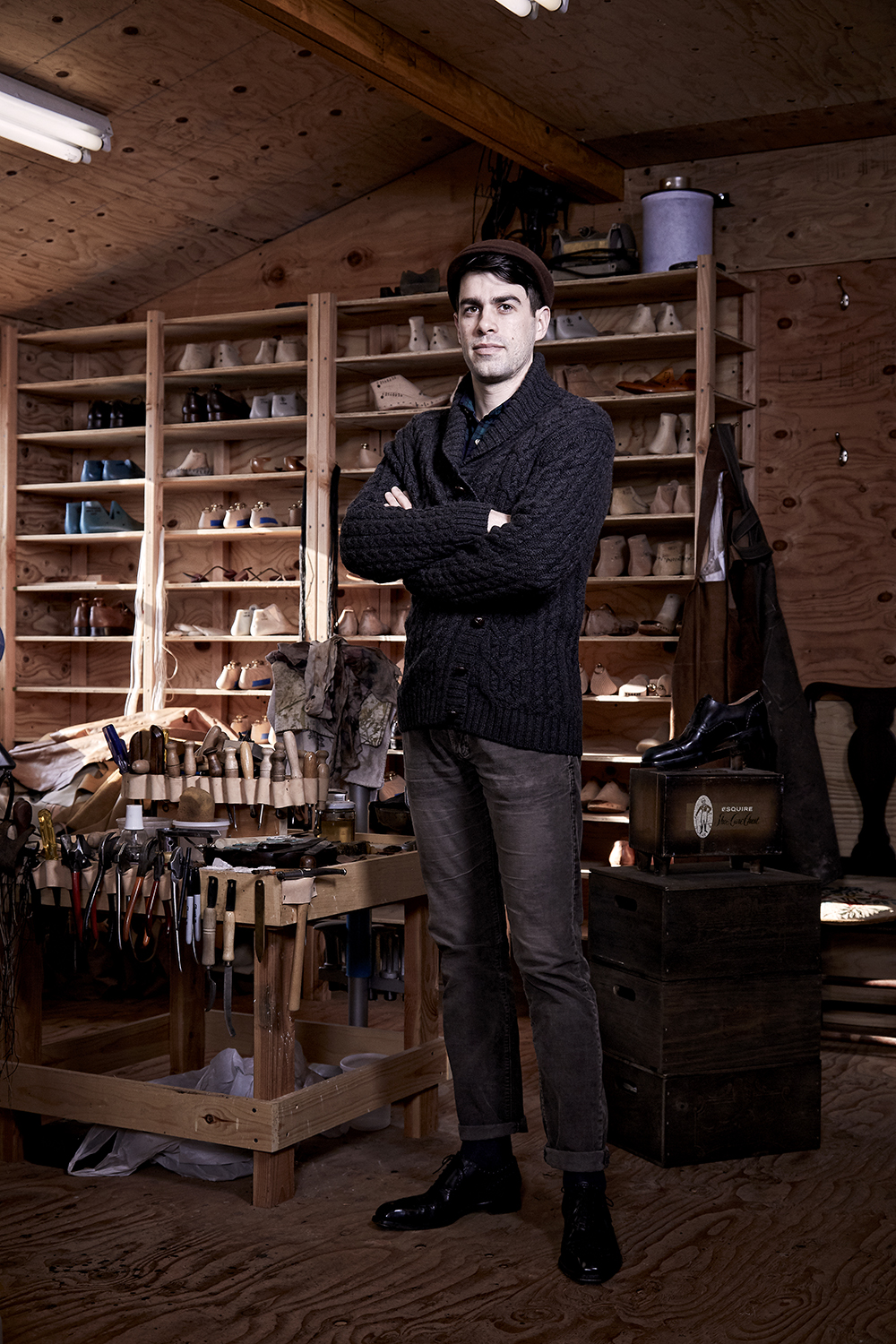
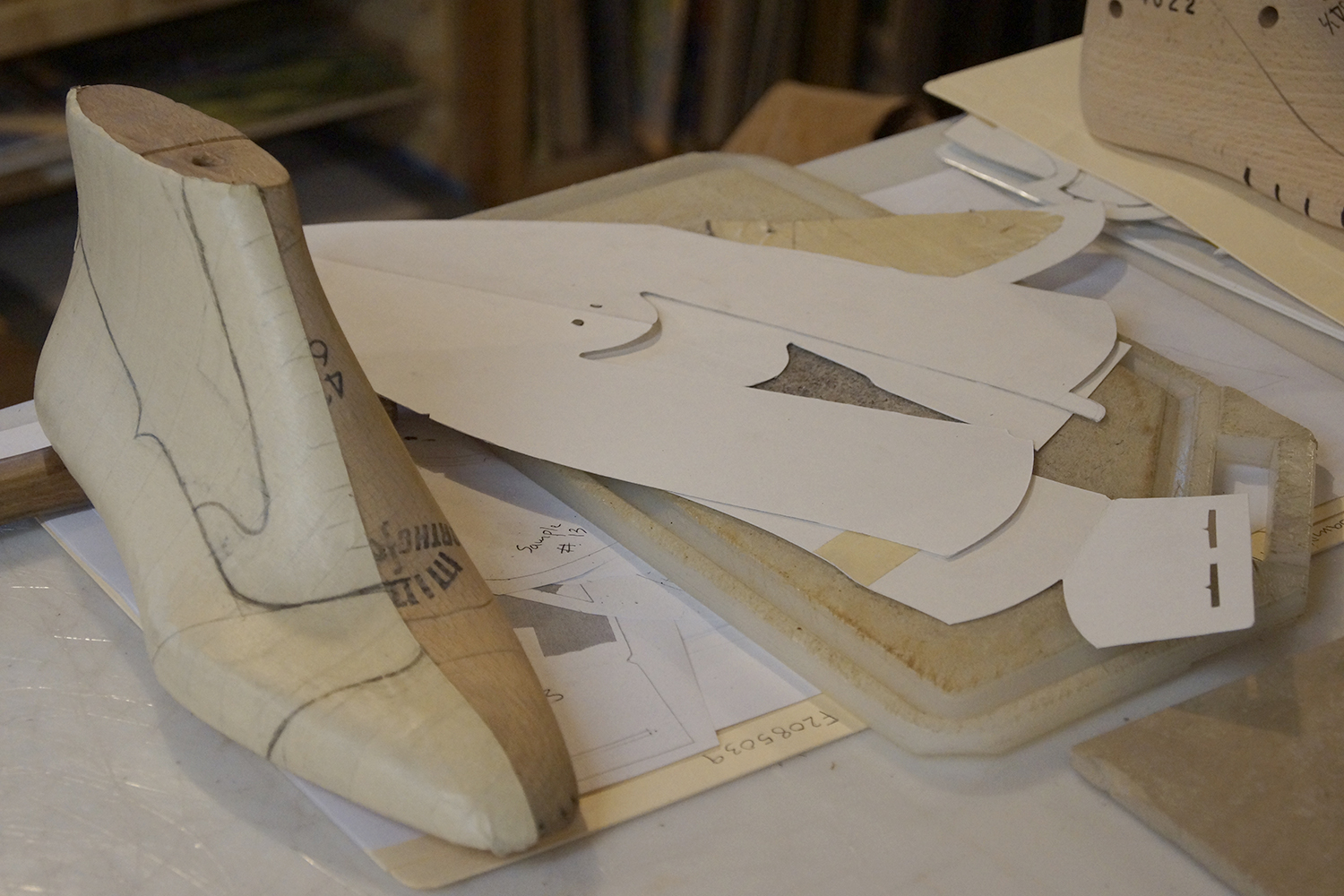
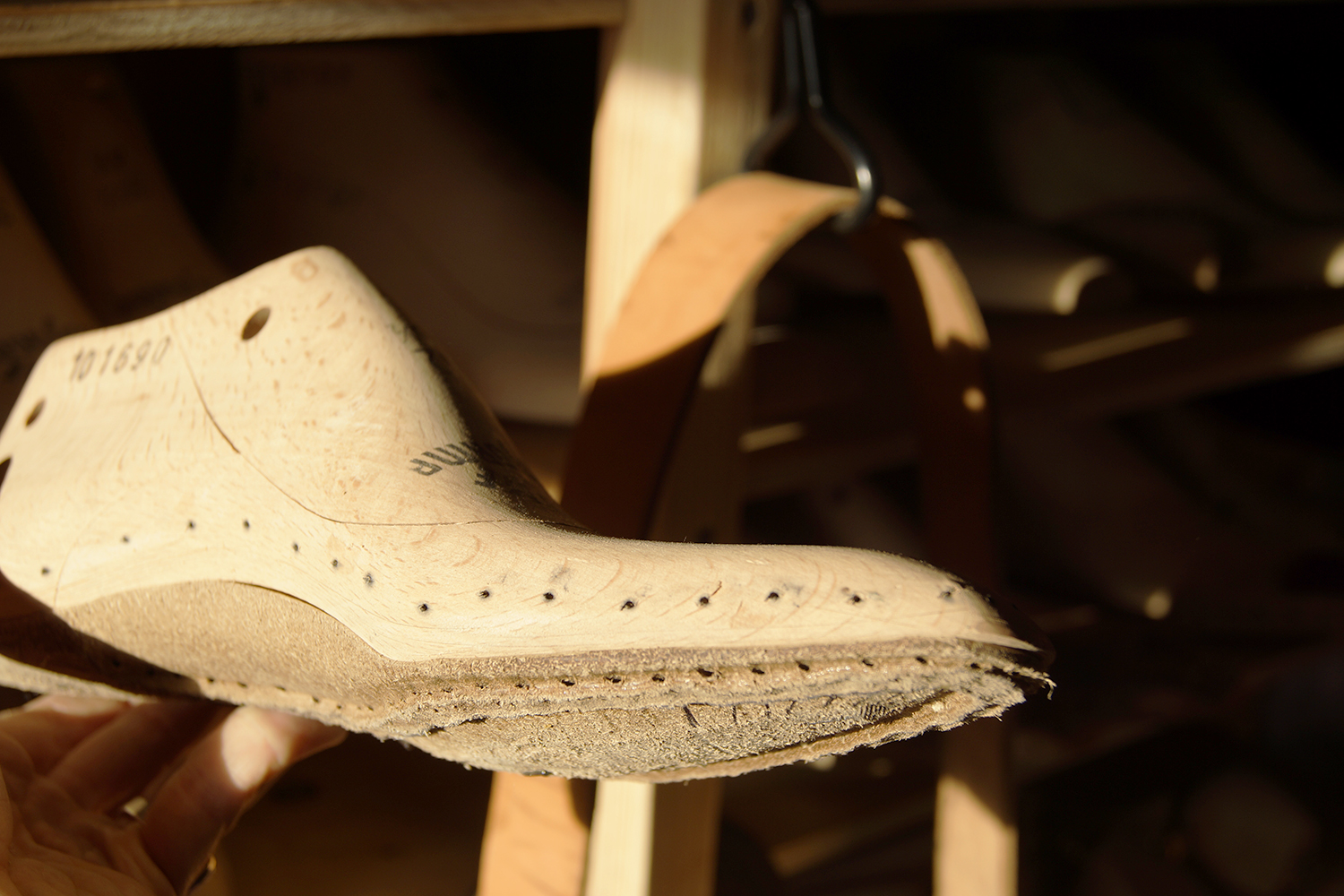
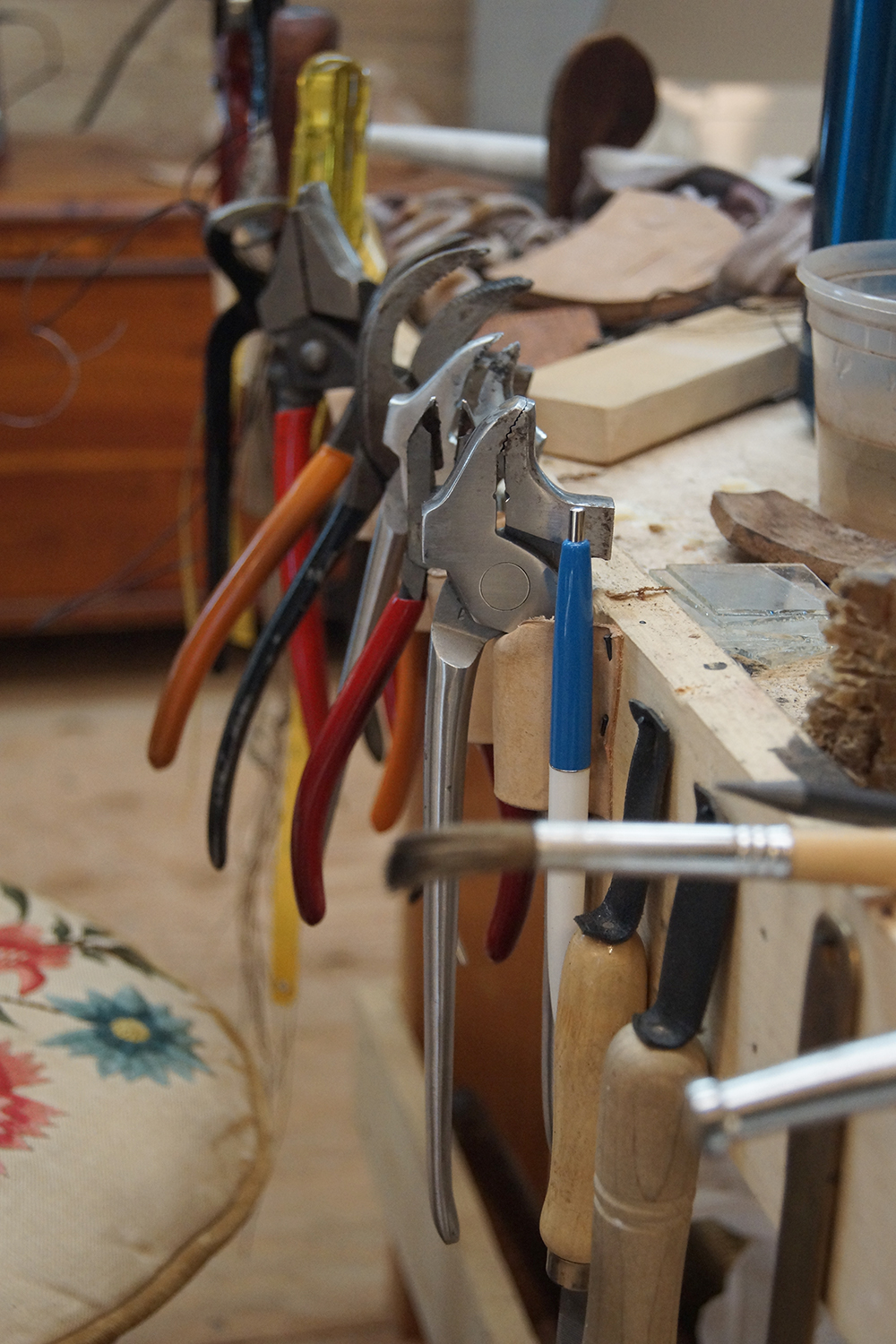

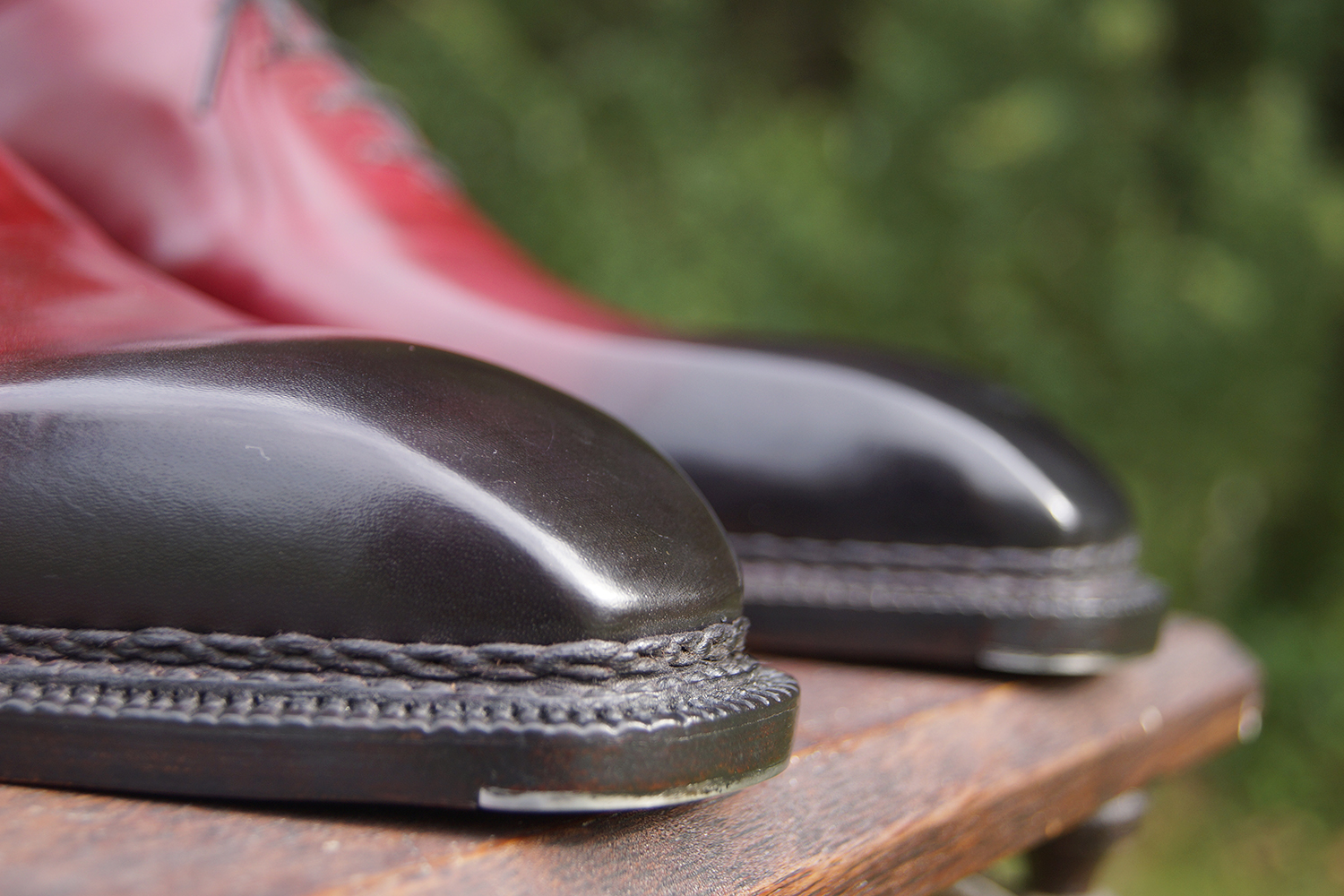
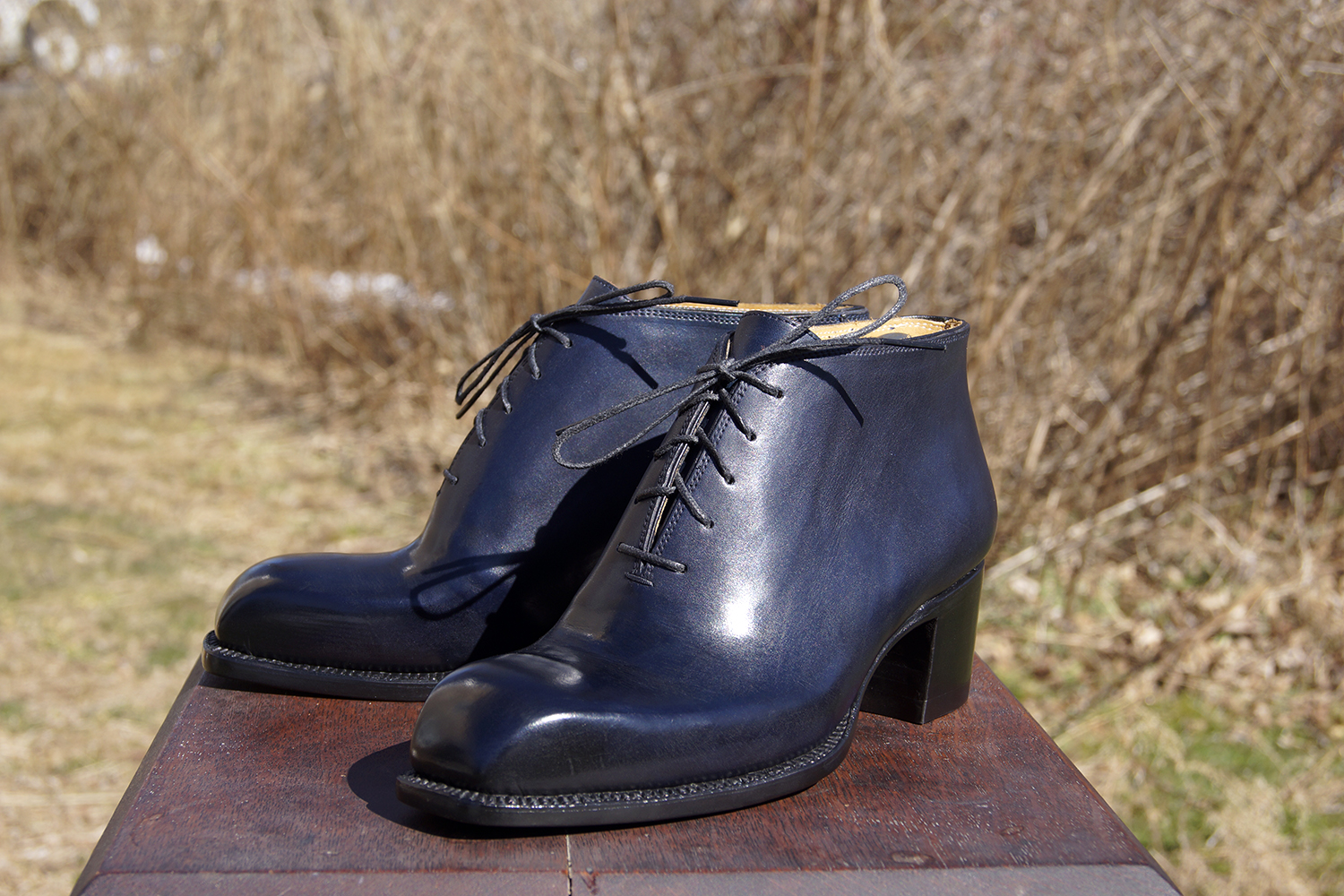
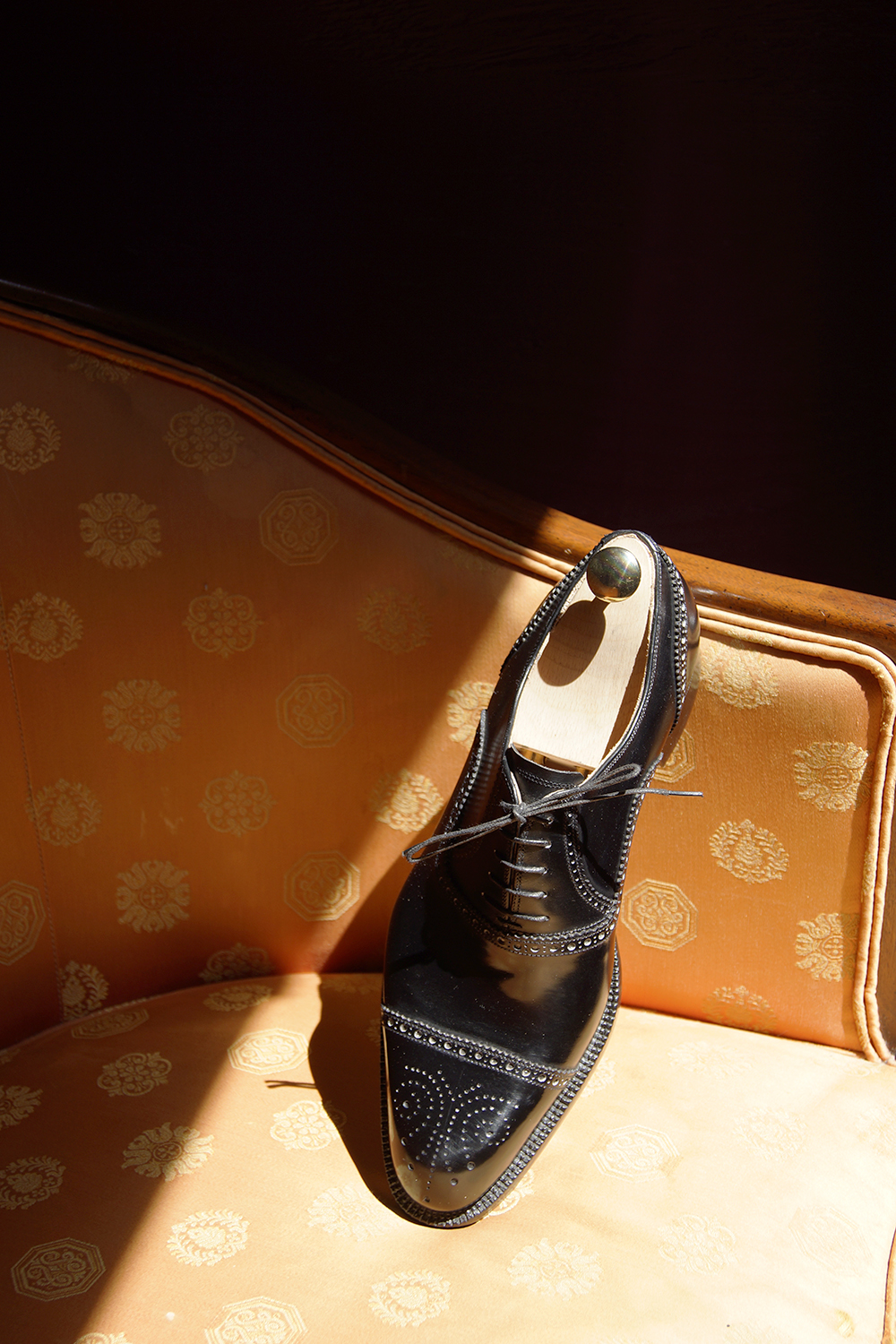


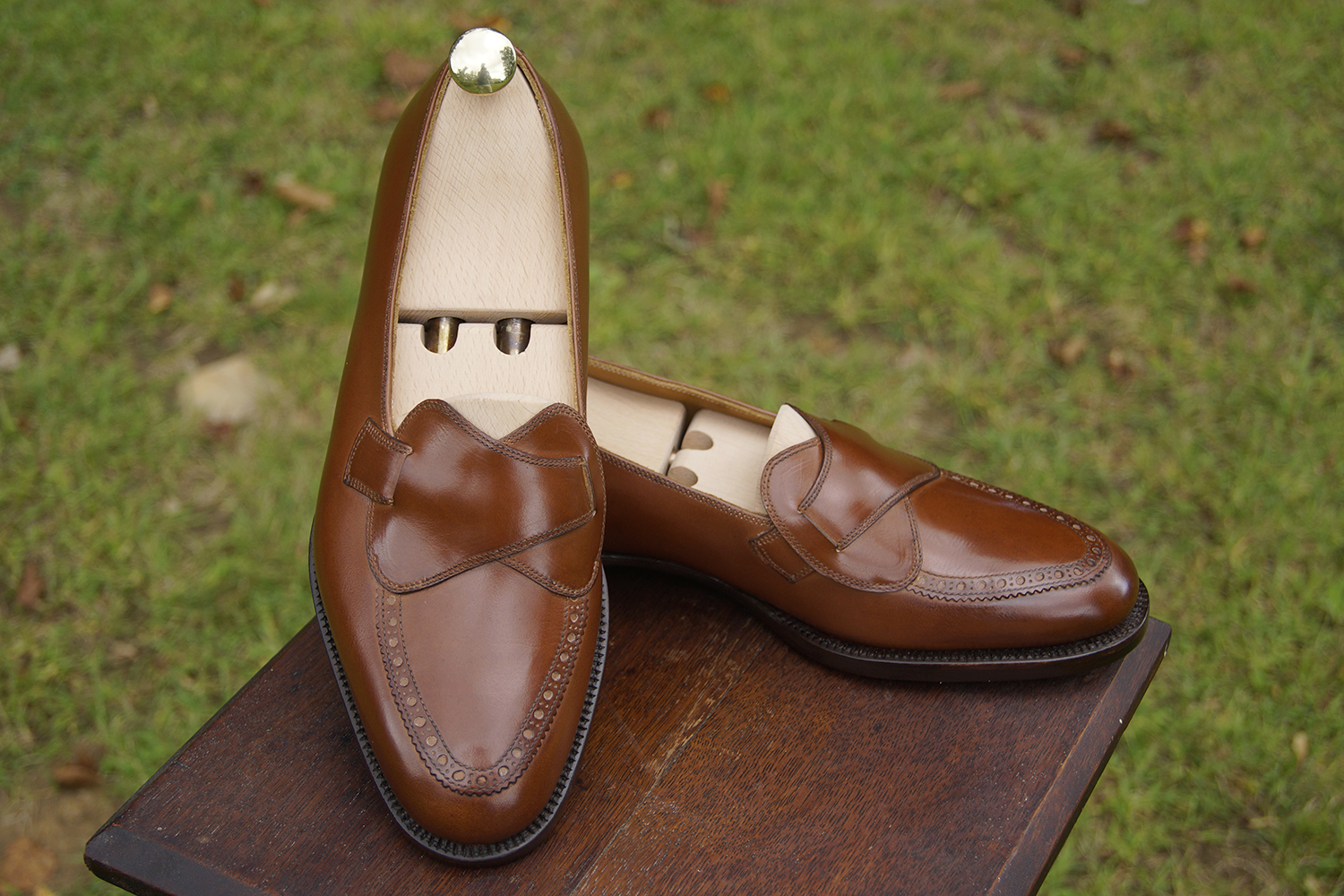
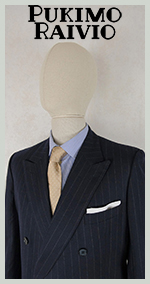

Francis’ passion and pursuit of this shoemaking business in the USA is of utmost admiration! His approach to this business in our country is commendable and we hope and pray that his business will continue to grow every year.